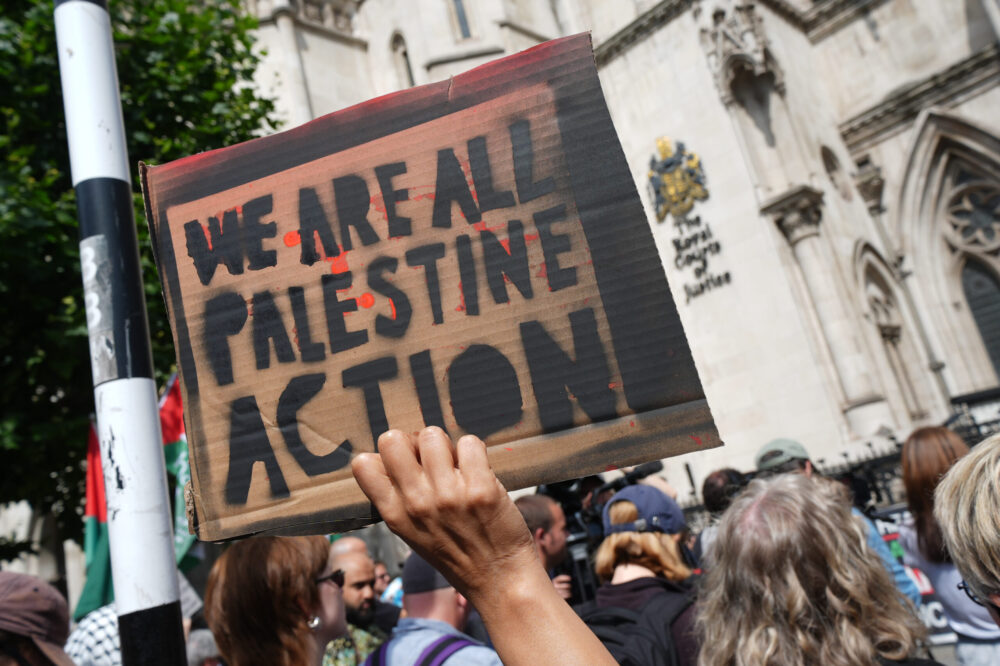Palestine Action Ban Faces Court Challenge
Palestine Action is back in the spotlight as one of its cofounders takes legal action against a government decision that could have major implications for protest rights in the UK. The legal bid targets the recent ban placed on the group under the country’s anti-terrorism legislation.
Legal Showdown Over Government Ban
The activist at the center of the legal challenge, Huda Ammori, is preparing to ask the UK High Court for permission to fight the proscription of Palestine Action. The government’s move to outlaw the group followed a controversial protest on June 20, during which activists splashed red paint on two Royal Air Force aircraft stationed at a military base.
The protest was intended to highlight what the group sees as the UK’s complicity in Israel’s military actions in Gaza. The targeted aircraft were allegedly being used in support operations, possibly transporting arms or equipment tied to ongoing violence in the region.
Protest or Terrorism?
Only a few days after the incident, the UK government announced the decision to ban Palestine Action. The Home Secretary labeled the protest “terrorist-related,” triggering immediate legal concern. The ban officially took effect on July 5, making it illegal to be a member of or express public support for the group.
An urgent attempt to stop the ban from coming into force failed in court. Still, Ammori has not backed down. The upcoming High Court challenge aims to reverse the decision and reinstate the group’s legal status. If successful, the case could set an important precedent for how protest groups are treated under counter-terror laws.
The Stakes Are High
The UK’s Terrorism Act 2000 provides wide-ranging powers for banning organizations. Once a group is proscribed, even symbolic acts of support—such as sharing a logo or slogan—can lead to criminal charges. Critics argue that this legislation, although intended to fight serious threats, is being stretched too far when applied to direct action groups like Palestine Action.
Supporters of the group say the government’s decision is an attack on free speech and the right to protest. They argue that Palestine Action’s methods, while disruptive, are aimed at exposing moral and legal concerns over the UK’s role in foreign conflicts, especially the ongoing war in Gaza.
Wider Implications for Activism
This legal battle is not just about one group. Activists, legal experts, and civil liberties organizations are watching closely. If the High Court agrees to hear the case, it will force a deeper look into how anti-terror laws are being used against political dissent.
In the past, similar movements and campaigns have faced surveillance and pressure, but a full ban under terrorism legislation is rare. The outcome could reshape the legal landscape for protest in Britain—either tightening restrictions or reinforcing the space for lawful dissent.

